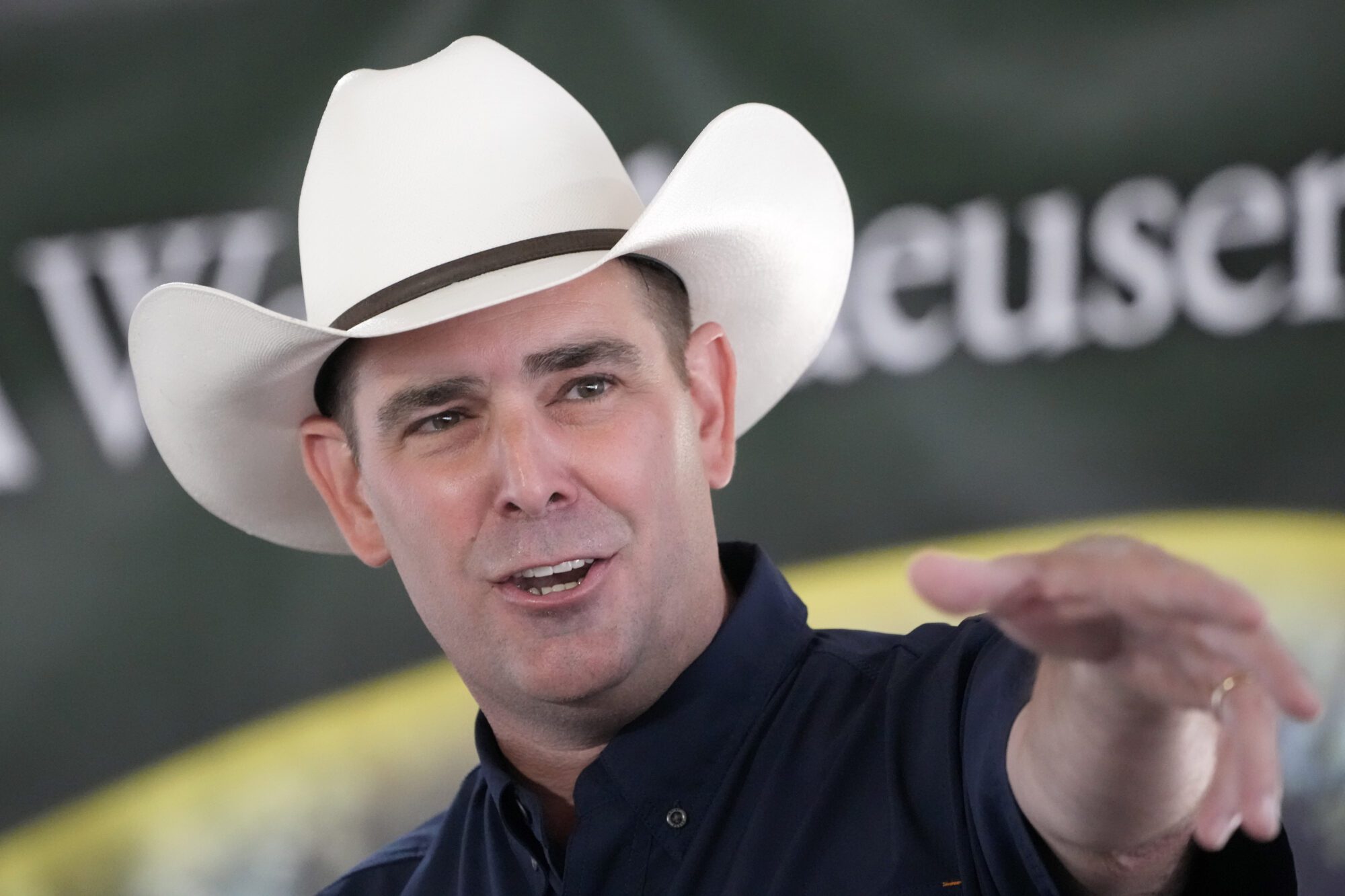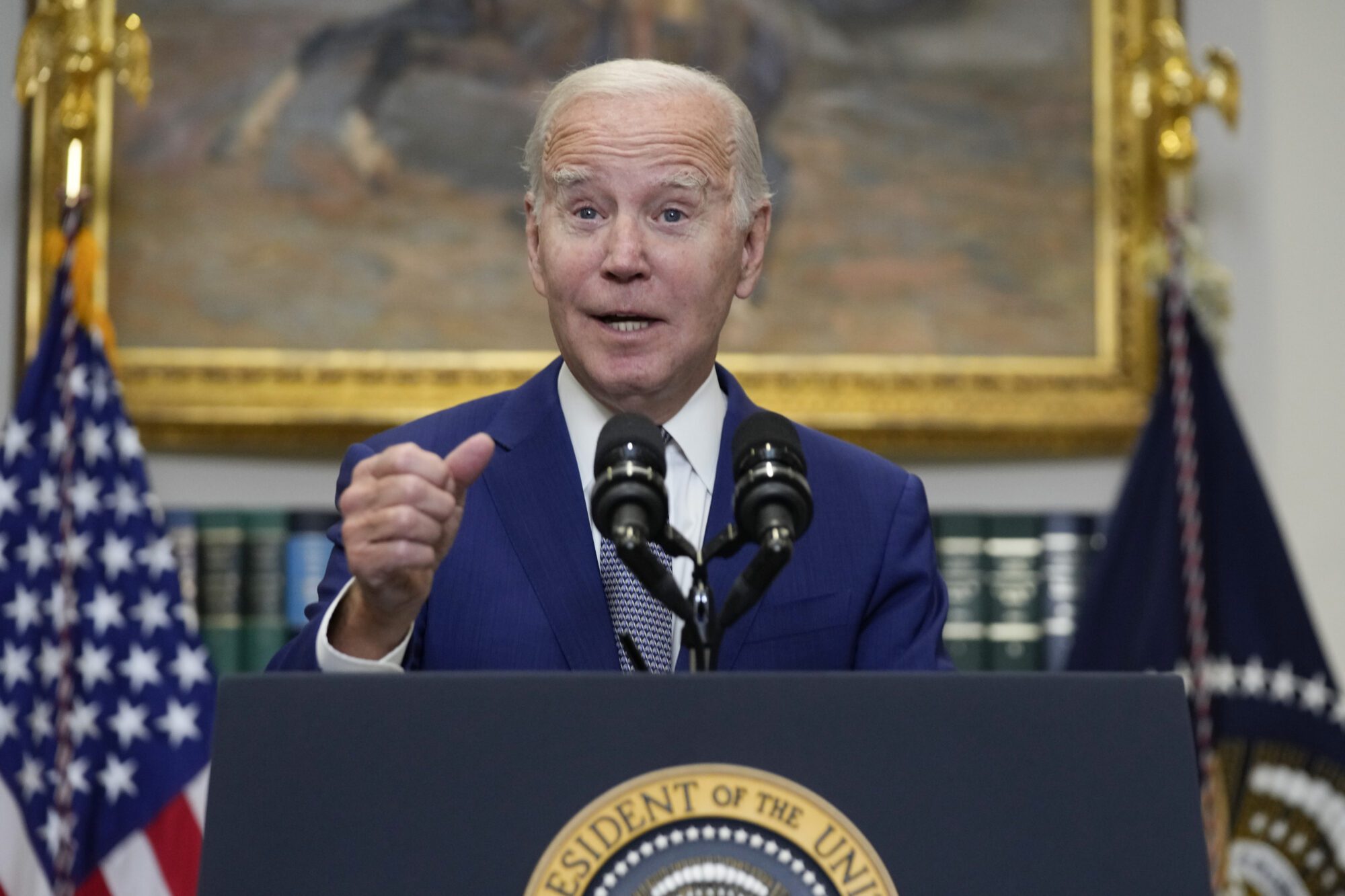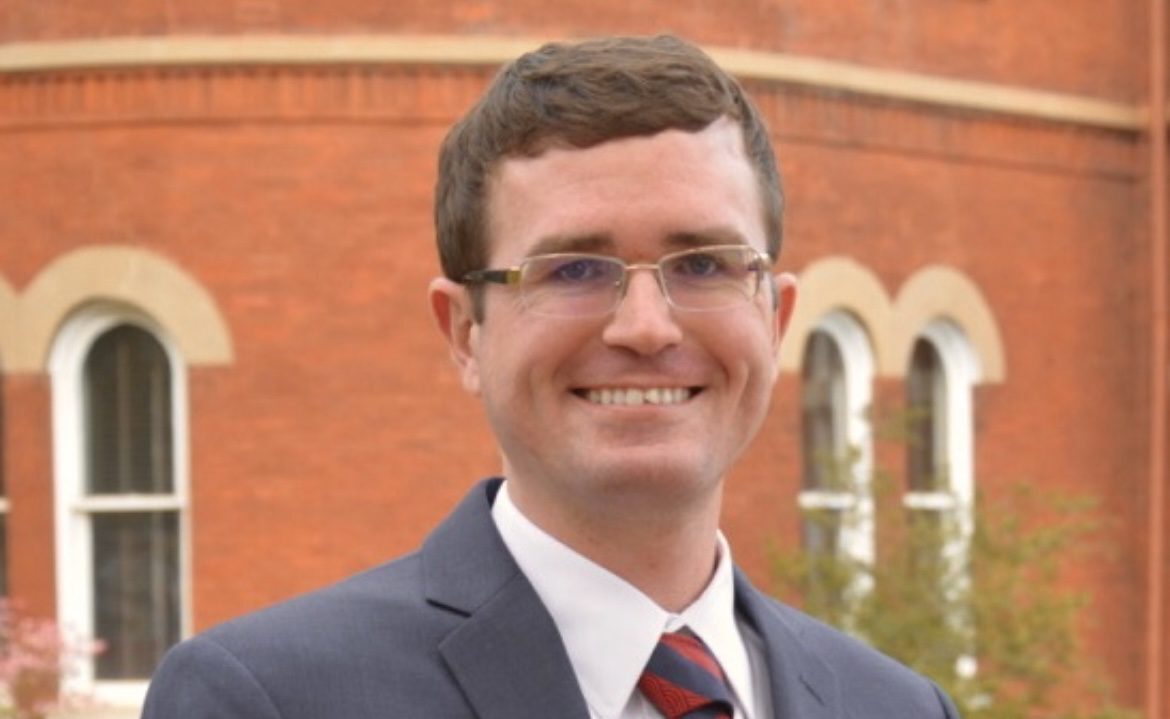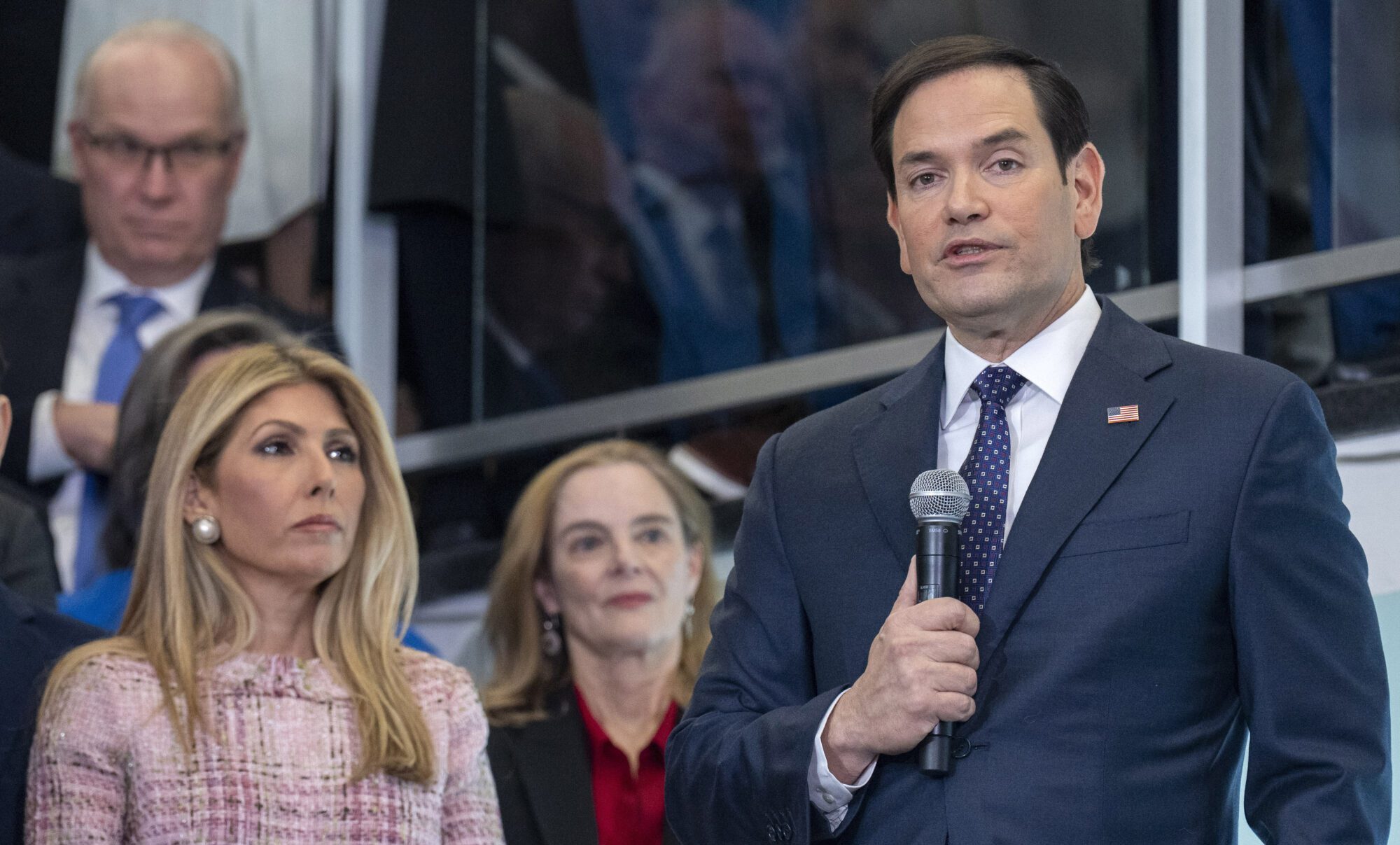
Pictures of U.S. Sen. Dianne Feinstein sit beside a condolence book for the senator at City Hall in San Francisco on Friday, Sept. 29, 2023. Feinstein of California, a centrist Democrat who was elected to the Senate in 1992 in the "Year of the Woman" and broke gender barriers throughout her long career in local and national politics, has died. She was 90. (AP Photo/ Benjamin Fanjoy)
The siren song of power keeps leaders in place too long, diminishing their legacies and undermining trust in our system of government. Dianne Feinstein deserved better. So too do the American people.
On Thursday of this week, U.S. Senator Dianne Feinstein passed away. At 90-years-old, the Democrat from California, was the longest-serving female senator in U.S. history and the oldest sitting member of Congress.
Feinstein was a fierce advocate for progressive causes and a pioneer for women in politics. There will be much lionizing of her service in the coming days and weeks. While I disagreed with much of what she stood for politically, the tributes Feinstein will receive are both customary and deserved.
Her passing, however, magnifies focus on an aging class of politicians. The siren song of power keeps leaders in place too long, diminishing their legacies and undermining trust in our system of government. Dianne Feinstein deserved better. So too do the American people.
In recent years, the senior Senator from California battled serious health concerns and faced legitimate questions about her fitness for office.
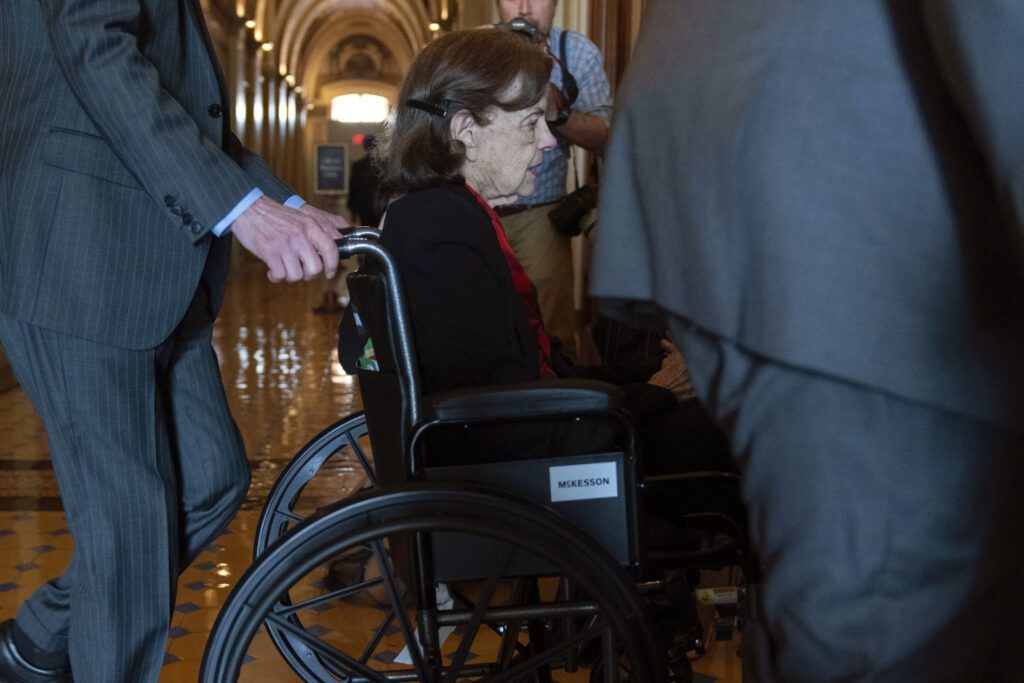
In early 2022, The San Francisco Chronicle documented a series of Democratic politicians–all of whom spoke on the condition of anonymity–that reported concern with Feinstein’s ability to continue serving:
Four U.S. senators, including three Democrats, as well as three former Feinstein staffers and [a] California Democratic member of Congress told The Chronicle in recent interviews that her memory is rapidly deteriorating. They said it appears she can no longer fulfill her job duties without her staff doing much of the work required to represent the nearly 40 million people of California.
The San Francisco Chronicle, April 14, 2022
The Democratic member of Congress interviewed by The Chronicle recounted that Feinstein’s memory had slipped so badly that they had to remind her who they were multiple times in a conversation, despite having a longstanding relationship with the Senator.
“There’s a joke on the Hill, we’ve got a great junior senator in Alex Padilla and an experienced staff in Feinstein’s office,” said a staffer for a California Democrat at the time.
Rolling Stone reported that for years running, Feinstein’s staff had a system in place to prevent her from walking the Capitol by herself for fear of what she might say to reporters.
A former staff member, Jamarcus Purley, told the magazine, “they will not let her leave by herself, but she doesn’t even know it.”
In February of this year, a serious case of the shingles accelerated Feinstein’s decline. She was hospitalized and suffered partial-face paralysis. After a nearly three-month absence from the Capitol, she returned in May pushed by a staffer through the halls in a wheelchair.
The New York Times characterized her return in solemn terms:
The grim tableau of her re-emergence on Capitol Hill laid bare a bleak reality known to virtually everyone who has come into contact with her in recent days: She was far from ready to return to work when she did, and she is now struggling to function in a job that demands long days, near-constant engagement on an array of crucial policy issues and high-stakes decision-making.
The New York Times, May 18, 2023
Feinstein Not Alone
Of course, advanced age is hardly a new story in politics. In 2002, then-South Carolina Senator Strom Thurmond turned 100 while serving in the U.S. Senate. Thurmond’s long-time colleagues to the north, Senator Jesse Helms (R-NC) and Senator Robert Byrd (D-WV) were 86 and 92, respectively, when they left the chamber.
In the current Senate, two U.S. Senators, Richard Shelby (R-AL) and Chuck Grassley (R-IA) are both nearing 90. Meanwhile, Minority Leader Mitch McConnell’s (R-KY) health has been called into question after a couple of public speaking moments saw him freeze up and look confused about his surroundings. McConnell is 81.
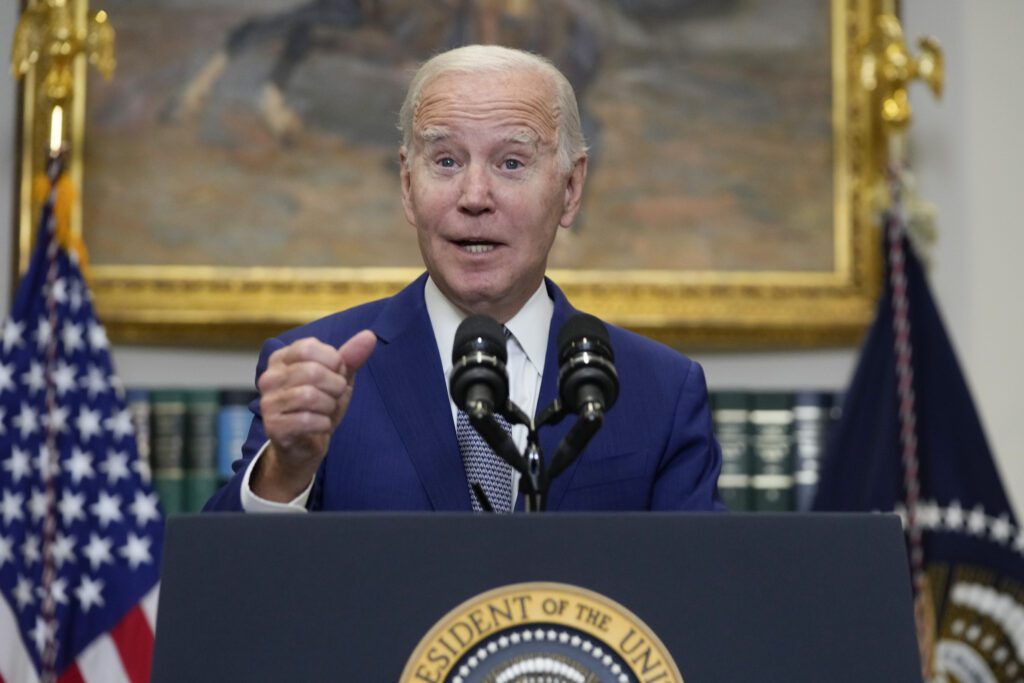
Then there’s the presidency. Prior to Joe Biden, Ronald Reagan was the oldest president to ever serve, leaving office at 77. Reagan famously faced his own questions about mental fitness toward the end of his second term.
At 80, Biden has already eclipsed Reagan. If he were to be re-elected, he would be 82 at the time of inauguration, and if he were to serve his whole term, 86 upon leaving office.
Biden’s gaffes are well-known, but increasingly Americans are concerned about his mental capacity to continue serving. In an NBC poll conducted this summer, 68 percent of American voters said they are worried about Biden having “the necessary mental and physical health to be president,” including 55 percent who said they have “major” concerns.
Even allies and friendly media outlets have begun to lend credence to those concerns, though a cynic might argue that this willingness to acknowledge Biden’s condition is more about polls that indicate the President’s re-elect is in trouble.
The current Republican frontrunner, former-President Donald Trump, is no spring chicken, either. If elected, he would be 78 at the time he is sworn in and 82 at the time his term is completed.
In the same NBC poll, Americans also questioned his fitness for office, though at lower level. 55 percent of voters said they were concerned about Trump’s mental and physical health, including 44 percent who had “major” concerns.
Age Limits the Answer?
In CBS News polling last month, 77 percent of people polled said there should be maximum age limits to serving in elected office. Support for the idea was bipartisan, with 79 percent of Republicans and 76 percent of Democrats saying they were in favor.
45 percent of those who supported age limits said 70 should be the maximum age. A combined 30 percent said the maximum age should be 50 or 60. Only 18 percent said the upper limit should be 80.
I am not crazy about drawing bright line rules that prevent people from deciding whether they can run for office, or from the voters’ side, who represents them. There’s very little doubt in my mind that there are 80 year olds who could run circles around me.
However, I am a fan of self-restraint, and if that’s not possible, tough love over enabling.
Last April, when The Chronicle interviewed fellow Democrats about Feinstein’s condition, a Democratic member of Congress they spoke with said, “It shouldn’t end this way for her. She deserves better. Those who think that they are serving her or honoring her by sweeping all of this under the rug are doing her an enormous disservice.”
They were right, but it was not just Feinstein who deserved better. The people of California and the people of our country deserve to be represented by leaders who can zealously fulfill the responsibilities of their offices.
The allure of power is great, not only for a president or senator, but for the many people around those individuals who gain power and favor by proxy. Human nature is to cling to it at all expense. It’s a rare breed that knows when to walk away.
But when a politician’s mental capacity diminishes to the point that they can no longer lead their own offices, or be trusted with media or to make important decisions; when we get to the point that twenty-something D.C. staffers are making the decisions with no check from an elected leader, it’s time for change.



